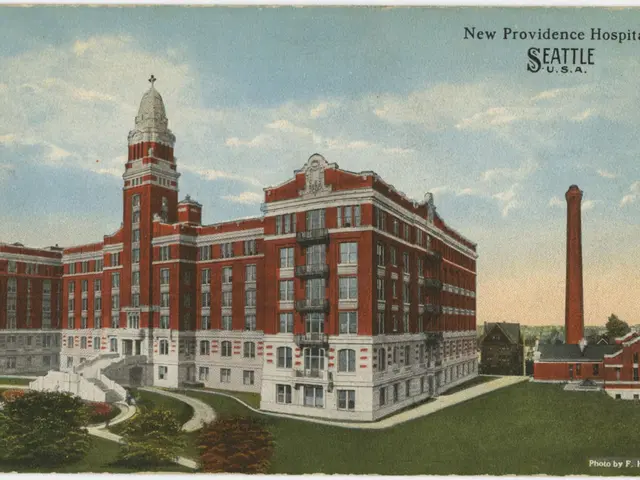Comprehensive overview of nonallergic rhinitis: identifying symptoms and available remedies
Non-allergic rhinitis is a common condition that affects many individuals, causing nasal irritation and inflammation not related to specific allergens. The exact cause of this condition remains unknown, but it is believed to occur due to inflammation of the blood vessels in the nose.
Symptoms of non-allergic rhinitis can vary from person to person but often include nasal congestion, sneezing, postnasal drip, and cough. Unlike allergic rhinitis, non-allergic rhinitis does not typically cause itching in the nose, eyes, or throat.
Several factors can trigger non-allergic rhinitis, including air irritants, climate changes, physical exertion, certain foods and beverages, hormonal changes, underlying health conditions, certain medications, overuse of nasal decongestant sprays, and underlying health conditions such as hypothyroidism or diabetes.
Common triggers of non-allergic rhinitis include exposure to smoke, strong odors, tobacco smoke, dust, and fumes; weather changes such as shifts in temperature or humidity, exposure to cold air, or sudden changes in weather; hot or spicy foods; medications like aspirin and nonsteroidal anti-inflammatory drugs (NSAIDs); hormonal fluctuations during pregnancy or menstruation; and stress. Infections, particularly viral infections, are also a frequent cause.
Treatment for non-allergic rhinitis is tailored to the specific triggers and symptoms involved. Treatment options include avoiding triggers, using over-the-counter medications like antihistamines and nasal sprays, nasal irrigation with saline solutions, prescription medications for severe symptoms, lifestyle modifications, allergy shots in rare cases, and self-care measures like keeping the environment clean, using a humidifier, practicing good hygiene, staying hydrated, using saline nasal sprays or rinses, applying warm compresses, elevating the head while sleeping, and keeping nasal passages hydrated.
In some cases, complications like nasal polyps and sinusitis can arise if non-allergic rhinitis is left untreated. If you experience severe symptoms, inadequate relief from home remedies or over-the-counter medications, or adverse side effects of medications, it is advisable to consult a healthcare professional for an accurate diagnosis and personalized treatment plan.
Understanding the causes, symptoms, and treatment options of non-allergic rhinitis can help individuals effectively manage this condition and improve their overall well-being. If your symptoms worsen or persist despite treatment, you experience asthma symptoms or worsening of existing asthma, your symptoms significantly affect your sleep and daily life, the cause of your symptoms is unclear, over-the-counter treatments do not provide adequate relief, or your symptoms significantly impact your work or school performance, it is advisable to seek more medical advice.
To diagnose non-allergic rhinitis, a doctor may perform a physical exam, review your medical history, and ask about symptoms and potential triggers. They may also perform tests to rule out allergic rhinitis. If you suspect you may have non-allergic rhinitis, it is essential to consult a healthcare professional for an accurate diagnosis and personalized treatment plan.
Self-care measures such as keeping the environment clean, using a humidifier, practicing good hygiene, staying hydrated, using saline nasal sprays or rinses, applying warm compresses, elevating the head while sleeping, and keeping nasal passages hydrated can be beneficial in managing non-allergic rhinitis. Fitness and exercise may also help alleviate symptoms, but it's important to consider the impact of physical exertion as a potential trigger. Certain medical conditions, such as respiratory conditions like asthma, can worsen symptoms of non-allergic rhinitis, highlighting the need for a healthy lifestyle encompassing nutrition, health, and wellness. It is essential to consult a healthcare professional for an accurate diagnosis and personalized treatment plan if symptoms persist or significantly impact daily life, especially when considering underlying health conditions that might trigger non-allergic rhinitis.





